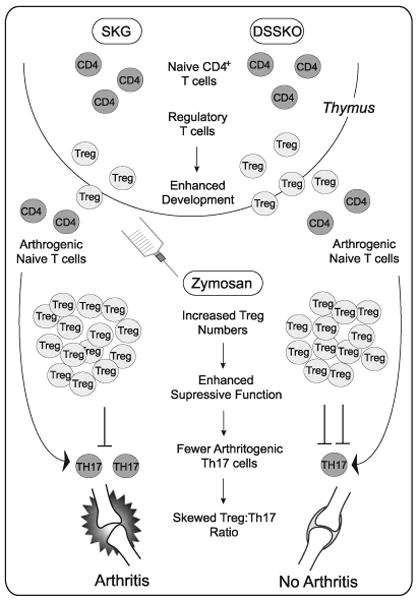Figure 6.

Model depicting how SLAP deficiency affects development and effector function of T cells in SKG mice. In the thymus, SLAP deficiency has a minimal effect on selection of CD4+ T cells yet significantly enhances the development of nTregs. This leads to DSSKO mice having a pool of peripheral T cells with specificity or autoreactive potential similar to that of an SKG mouse, but more of which are Tregs. In SKG mice, both Tregs and autoreactive Th17 cells expand upon zymosan exposure. However, the Tregs are not sufficient to control the autoreactive Th17 cells, and arthritis develops. In contrast, in DSSKO mice zymosan exposure leads to a greater expansion of Tregs that have enhanced suppressive capacity. Increased expansion and function of Tregs in DSSKO mice accompanied by a diminished expansion of autoreactive Th17 cells renders the Tregs sufficient to control the autoreactive T cells, preventing the development of arthritis.
